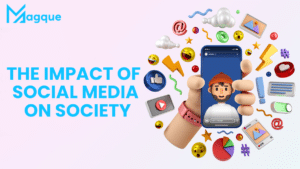Social media has become an integral part of our lives in today’s digital age. It’s a powerful tool for communication, connecting with friends and family, and even conducting business. However, with great power comes great responsibility. The ethical implications of our online actions are more significant than ever before. Let’s explore the intriguing world of social media ethics and how to navigate the online realm responsibly.
Understanding the Digital Landscape
To grasp the concept of social media ethics, imagine the internet as a vast virtual city. In this city, social media platforms are like bustling streets filled with millions of users, each with their thoughts, opinions, and actions. Navigating these streets can be both exciting and treacherous. But as responsible digital citizens, we must be aware of our impact on this virtual society.
The Perplexity of Online Responsibility
One of the perplexing aspects of online responsibility is the blurred line between our virtual and real-life selves. Our online actions can have real consequences, affecting our relationships, careers, and mental well-being. Consider the burstiness of social media, where information spreads rapidly, and a single post can go viral in seconds. This burstiness amplifies the impact of our online choices.
The Role of Personal Pronouns
So, how can we navigate the intricate web of online responsibility? First, we must recognize that we play a vital role in shaping the online world. Using personal pronouns like “I” and “you” can establish a connection with the reader, making the topic relatable and engaging. You have the power to make a difference in the digital realm.
The Activeness of Ethical Behavior
Being an active participant in ethical online behaviour means considering the consequences of your actions. Before hitting that “post” button, ask yourself if your words or images contribute positively to the virtual city or add to its chaos. Activeness in ethical behaviour involves promoting kindness, empathy, and respect in your online interactions.
Keeping it Simple and Brief
In this fast-paced digital era, simplicity and brevity are key. Avoid getting tangled in lengthy arguments or complex debates that may escalate quickly. Instead, strive for clear and concise communication. Keep your messages brief, and focus on conveying your point respectfully.
Rhetorical Questions for Self-Reflection
To encourage self-reflection and responsible online behaviour, consider asking rhetorical questions such as, “Would you say this face-to-face?” or “How would you feel if someone said this to you?” These questions prompt individuals to consider the human impact of their online actions.
The Analogies of Online Responsibility
Think of online responsibility as navigating a ship through turbulent waters. Just as a captain must steer their boat to avoid hazards and maintain a safe course, you must guide your online presence carefully and thoughtfully. The internet may seem boundless, but your choices define its ethical boundaries.
Conclusion: Charting Your Digital Course
Ethics are the compass that guides us in the virtual city of the internet. Navigating online responsibility is a journey of self-awareness and mindfulness. By understanding the perplexity and burstiness of the digital landscape, using personal pronouns, staying active in ethical behaviour, keeping it simple, asking rhetorical questions, and embracing analogies, we can become responsible digital citizens who leave a positive mark on this ever-evolving world.
So, as you embark on your digital adventures, remember that you have the power to shape the online realm for the better. Choose your actions wisely, and let ethics be your guiding star in the vast sea of social media. And be sure to explore Magque, your go-to source for the latest and most intriguing updates in informative tips & reviews!
FAQs
Q1. What is social media ethics?
Social media ethics refers to the moral principles and guidelines that govern our behaviour and interactions on social media platforms. It involves making responsible choices, respecting others, and considering the consequences of our online actions.
Q2. Why is online responsibility important?
Online responsibility is crucial because our social media actions can impact our online reputation, real-life relationships, and opportunities. Being responsible online helps create a positive and respectful digital environment.
Q3. How can I be a responsible digital citizen?
To be a responsible digital citizen, you can start by being mindful of what you post, avoiding cyberbullying or harassment, respecting others’ privacy, fact-checking information before sharing, and promoting kindness and empathy in your online interactions.
Q4.What are some common ethical dilemmas on social media?
Common ethical dilemmas on social media include issues like spreading false information, engaging in cyberbullying, violating privacy by sharing personal data and participating in online hate speech or harassment. Recognizing these dilemmas is the first step toward responsible online behaviour.
Q5. Can social media make a difference in promoting online responsibility?
Yes, social media has the potential to be a powerful tool for promoting online responsibility. By sharing positive messages, engaging in constructive discussions, and supporting campaigns that advocate for responsible online behaviour, individuals and communities can significantly impact fostering a more ethical digital world.
Read Also This:- The Impact of Short-Form Videos on Social Media



















